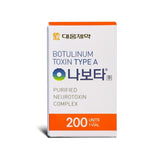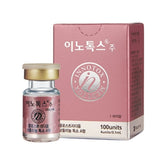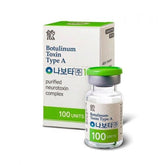Understanding the Difference Between Natural and Organic Cosmetics

Understanding the Difference Between Natural and Organic Cosmetics. Cosmetics play a significant role in our daily routines, helping us enhance our appearance and boost our confidence. However, there is a lot of conflicting information about the impact of cosmetics on skin health. This blog post will explore the myths and realities surrounding the use of cosmetics and their effects on our skin, helping you make informed decisions about the products you use.
Myth 1: All Cosmetics Clog Pores and Cause Acne
Reality: Not all cosmetics clog pores and cause acne. The key is to choose non-comedogenic products, which are specifically formulated not to block pores. Ingredients like mineral oil, lanolin, and certain silicones can be comedogenic for some people. Always look for labels that mention "non-comedogenic" or "won't clog pores" to minimize the risk of breakouts. Additionally, it's essential to remove makeup thoroughly before going to bed to prevent pore blockage and skin irritation.
Myth 2: Natural and Organic Cosmetics Are Always Better for Your Skin
Reality: While natural and organic cosmetics often contain fewer synthetic chemicals, they are not always better for your skin. Natural ingredients can still cause allergic reactions or irritation, depending on your skin type and sensitivities. For example, essential oils, which are common in natural products, can be irritating for some people. It's important to patch test new products and choose those that suit your skin's specific needs, regardless of whether they are natural or synthetic.
Myth 3: Expensive Cosmetics Are More Effective
Reality: The effectiveness of a cosmetic product is not determined by its price. Many affordable products contain the same active ingredients as their expensive counterparts. What matters most are the ingredients and how they interact with your skin. It's essential to focus on the formulation and choose products with proven active ingredients like hyaluronic acid, retinoids, and antioxidants, rather than relying solely on the price tag.
Myth 4: Makeup Causes Premature Aging
Reality: Makeup itself does not cause premature aging. However, improper use and inadequate removal can contribute to skin issues that may accelerate aging signs. Leaving makeup on overnight can lead to clogged pores, inflammation, and oxidative stress, which can damage the skin over time. To protect your skin, always remove makeup thoroughly before bed and follow a proper skincare routine that includes cleansing, moisturizing, and sun protection.
Myth 5: All Sunscreens Cause Breakouts
Reality: Not all sunscreens cause breakouts. The key is to choose the right formula for your skin type. Look for non-comedogenic, oil-free sunscreens if you have oily or acne-prone skin. Mineral-based sunscreens with zinc oxide or titanium dioxide are often less likely to cause breakouts compared to chemical sunscreens. Sunscreen is essential for protecting your skin from UV damage, which can lead to premature aging and skin cancer, so finding a suitable product is crucial.
Reality: The Benefits of Using Cosmetics
Cosmetics can offer several benefits beyond enhancing your appearance. Here are some positive impacts of using the right cosmetic products:
- Sun Protection: Many cosmetics, such as foundations and moisturizers, now include SPF, providing an added layer of protection against harmful UV rays.
- Hydration: Products like moisturizers and hydrating primers help maintain the skin's moisture balance, preventing dryness and flakiness.
- Barrier Protection: Makeup can act as a barrier against environmental pollutants, dirt, and bacteria, reducing the risk of skin infections and irritation.
- Boosting Confidence: Using cosmetics can improve self-esteem and confidence by helping you achieve your desired look and cover imperfections.
How to Choose the Right Cosmetics for Your Skin
Choosing the right cosmetics for your skin is crucial for maintaining skin health and achieving the desired effects. Here are some tips to help you make the best choices:
- Know Your Skin Type: Understanding your skin type (oily, dry, combination, or sensitive) is the first step in selecting the right products. Choose formulations that cater to your specific skin needs.
- Read Labels: Look for products with ingredients that benefit your skin type. For example, hyaluronic acid is great for hydration, while salicylic acid helps with acne.
- Patch Test: Always perform a patch test when trying new products to ensure they do not cause irritation or allergic reactions.
- Avoid Harmful Ingredients: Be cautious of products containing alcohol, sulfates, and synthetic fragrances, which can be harsh and drying for the skin.
- Seek Professional Advice: If you have persistent skin issues, consider consulting a dermatologist for personalized recommendations and treatments.
Maintaining Healthy Skin While Using Cosmetics
To ensure that your skin remains healthy while using cosmetics, follow these essential skincare tips:
- Cleanse Regularly: Cleanse your face twice a day to remove makeup, dirt, and excess oil. Use a gentle cleanser that suits your skin type.
- Moisturize: Keep your skin hydrated by using a suitable moisturizer. Even if you have oily skin, moisturizing is essential to maintain the skin's balance.
- Sun Protection: Apply sunscreen daily, even on cloudy days, to protect your skin from UV damage. Reapply every two hours if you are outdoors.
- Remove Makeup Before Bed: Always remove your makeup thoroughly before going to bed to prevent clogged pores and skin irritation.
- Exfoliate: Exfoliate your skin regularly to remove dead skin cells and promote cell turnover. Use a gentle exfoliant suitable for your skin type.
Understanding the impact of cosmetics on skin health is essential for making informed decisions about the products you use. While there are many myths surrounding cosmetics, the reality is that with the right choices and proper skincare practices, cosmetics can be a valuable addition to your beauty routine. By selecting products suited to your skin type, avoiding harmful ingredients, and maintaining a consistent skincare regimen, you can enjoy the benefits of cosmetics without compromising your skin health.
Exploring the myths and realities of cosmetics helps us appreciate the importance of informed choices and proper skin care. Whether you prefer natural, organic, or synthetic products, the key is to find what works best for your skin and enhances your overall well-being. With the right approach, cosmetics can be a powerful tool for maintaining healthy, radiant skin.





